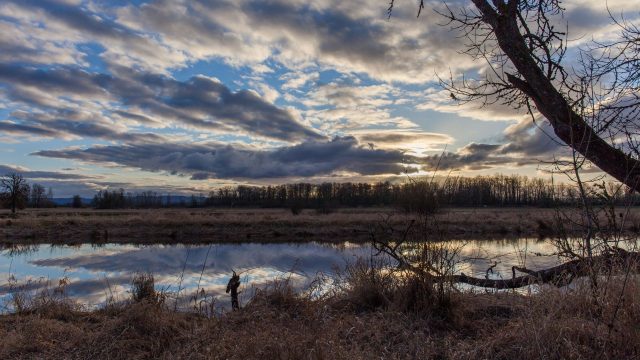18
Aug
Groups Sue U.S. Interior Department to Protect the Dungeness National Wildlife Refuge from Industrial Aquaculture

(Beyond Pesticides, August 18, 2023) Yesterday, three environmental organizations filed a lawsuit against the U.S. Department of Interior for failing to protect the Dungeness National Wildlife Refuge from industrial aquaculture. The groups, including Protect the Peninsula’s Future, Coalition to Protect Puget Sound Habitat, and Beyond Pesticides, filed their complaint in the U.S. Western District Court of Washington State. The complaint states that the U.S. Fish and Wildlife Service (USFWS), U.S. Department of Interior, must “take action that is required by the Refuge Improvement Act and conduct a compatibility determination and require a special use permit for a proposed industrial aquaculture use” that will abut and impact the Refuge. The plaintiffs are represented by the Seattle, WA law firm of Bricklin and Newman LLP.
The shellfish operation leases 50 acres of Washington State bottomlands; 34 acres to be covered with up to 80,000 plastic bags of non-native shellfish and staked into the bottomlands, potentially killing all benthic life underneath and snaring wildlife in the netting. This operation would shift the natural year-round-sediment movement, directing the sediment into the eelgrass beds – beds protected for rearing salmon for whales and nourishing particular migratory ducks. Additionally, the plastic bags will cover primary feeding grounds for residential and migratory birds.
“Despite knowing the gravity this portends, unfortunately, the USFWS has side-stepped its authority to consider the compatibility of the industrial shellfish operation with the Refuge and residual harm to the wildlife and their habitat,” said Laura Hendricks, executive director of Coalition to Protect Puget Sound Habitat.
“Migratory birds suffer much on their lengthy journeys each fall and winter – air pollution, water pollution, toxic fumes. Now they face starvation as their reliable feeding grounds will be taken. This cannot be allowed,” said Darlene Schanfald with Protect the Peninsula’s Future.
“The USFWS is supposed to protect the species and habitats, not enable their peril. We are asking the court to tell the agency to do its job,” said Jay Feldman, executive director of the Washington, D.C. organization Beyond Pesticides. “This is also troubling because it will set a precedent for all other national refuges to allow industrial shellfish operations,” Mr. Feldman said.
The Dungeness National Wildlife Refuge was created by Executive Order in 1915 by Woodrow Wilson, directing the area to be set aside as a “refuge, preserve and breeding ground for native birds and prohibits any disturbance of the birds within the reserve.” The Refuge provides habitat, a preserve, and breeding grounds for more than 250 species of birds and 41 species of land animals.
The front page of the Refuge website states: “Pets, bicycles, kite flying, Frisbees, ball-playing, camping, and fires are not permitted on the Refuge as they are a disturbance for the many migrating birds and other wildlife taking solitude on the Refuge.” With this level of concern, it is counterintuitive to allow destructive industrial aquaculture.
Contact: Darlene Schanfald, Protect the Peninsula’s Future, 360-681-7565, [email protected]
Laura Hendricks, Coalition to Protect Puget Sound Habitat, 253-509-4987
Jay Feldman, Beyond Pesticides, 202-255-4296, [email protected]











July 30, 2024
July 30th, 2024 at 2:49 pmI live in Sequim. What can I do? Huge compromise in preserving what was a sanctioned wildlife preserve.
Hi Christopher! Thanks for your outreach! We would encourage you to join our Action available for the public to urge the Washington State Department of Natural Resources and the U.S. Fish and Wildlife Service to rescind the lease on the Dungeness National Wildlife reserve. https://secure.everyaction.com/FhkOkC6-z06uHzzPLPrMsg2
We also invite you to reach out to the team at [email protected], as it would allow the opportunity for a member of the staff to discuss more local opportunities to take action from Sequim.
We appreciate your engagement and support on this issue!
August 5th, 2024 at 1:40 pm